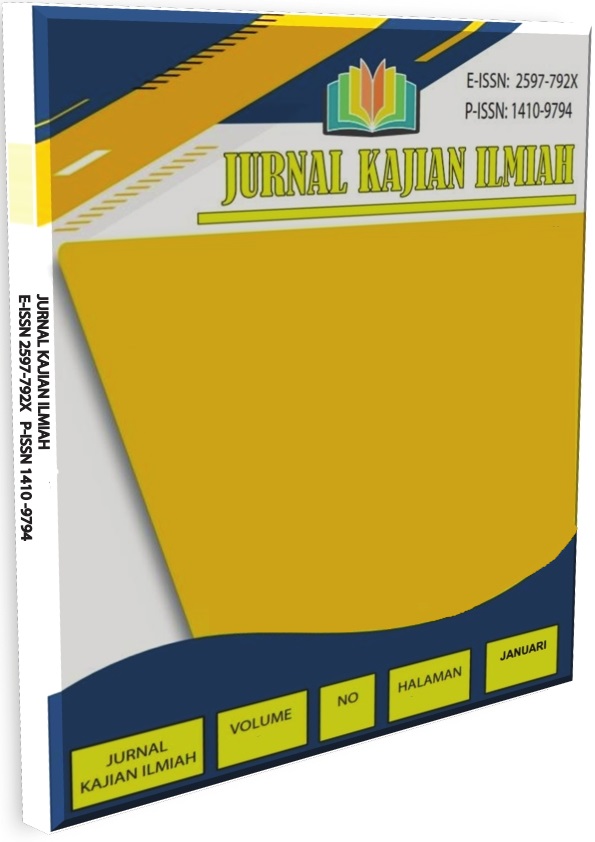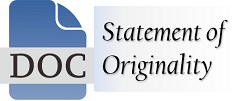Pemetaan Isu Strategis Urusan Perangkat Daerah Di Kabupaten Bekasi
DOI:
https://doi.org/10.31599/p6bn9a09Keywords:
Strategic Issues; Regional Official AffairsAbstract
Regional development problems are the cause of the gap between the development performance currently achieved and what was planned and between what is to be achieved in the future and the real conditions when the planning was made. The formulation of regional development problems is divided into two groups, namely problems in determining regional development priorities and targets and problems in administering regional government affairs. The problem of regional development is the difference in achievement between the development performance currently achieved and what is planned and between what is to be achieved in the future and current conditions. The differences in question can be seen from regional achievement gaps, as well as provincial achievements and general indicator targets in the regional medium term development plan for the 2025-2029 period. This research aims to map strategic issues in regional government affairs in bekasi regency. This research uses a qualitative descriptive research design, where research data is obtained through data collection techniques in the form of interviews, observations and documentation studies. The analysis technique uses descriptive techniques including data collection, data condensation, data presentation, and drawing conclusions. The results of this research are an analysis of strategic issues which are an important and crucial part of the process of preparing regional development plans to complete the stages that have been carried out previously. Identification of appropriate and strategic issues increases the acceptability of development priorities, can be operationalized and can be morally and bureaucratically accountable. Strategic issues regarding regional officials are obtained from both internal analysis in the form of identifying development problems and external analysis in the form of conditions that create opportunities and threats for regional officials in the next five years.
Downloads
References
Dokumen Rancangan Awal Rencana Pembangunan Jangka Panjang Daerah Kabupaten (Rpjpd) Bekasi Tahun 2025-2045. Bappeda Kabupaten Bekasi. 2024
Dokumen Kajian Lingkungan Hidup Strategis (Klhs) Rencana Pembangunan Jangka Panjang Daerah (Rpjpd) Kabupaten Bekasi Tahun 2025 – 2045
Peraturan Bupati Nomor 195 Tahun 2022 Tentang Rencana Pembangunan Daerah (Rpd) Kabupaten Bekasi Tahun 2023 – 2026.
Peraturan Menteri Dalam Negeri Nomor 18 Tahun 2020 Tentang Peraturan Pelaksanaan Peraturan Pemerintah Nomor 13 Tahun 2019 Tentang Laporan Dan Evaluasi Penyelenggaraan Pemerintahan Daerah;
Peraturan Menteri Dalam Negeri Nomor 86 Tahun 2017 Tentang Tata Cara Perencanaan, Pengendalian Dan Evaluasi Rancangan Peraturan Daerah Tentang Rencana Pembangunan Jangka Panjang Daerah Dan Rencana Pembangunan Jangka Menengah Daerah Serta Tata Cara Perubahan Rencana Pembangunan Jangka Panjang Daerah, Rencana Pembangunan Jangka Menengah Daerah Dan Rencana Kerja Pemerintah Daerah;
Peraturan Menteri Dalam Negeri Nomor 54 Tahun 2010 Tentang Pelaksanaan Peraturan Pemerintah Nomor 8 Tahun 2008 Tentang Tahapan, Tatacara Penyusunan, Pengendalian, Dan Evaluasi Pelaksanaan Rencana Pembangunan Daerah;
Peraturan Pemerintah Nomor 8 Tahun 2008 Tentang Tahapan Tata Cara Penyusunan, Pengendalian Dan Evaluasi Pelaksanaan Rencana Pembangunan Daerah (Lembaran Negara Republik Indonesia Tahun 2008 Nomor 21, Tambahan Lembaran Negara Republik Indonesia Nomor 4698);
Undang - Undang Nomor 25 Tahun 2004 Tentang Sistem Perencanaan Pembangunan Nasional (Lembaran Negara Republik Indonesia Tahun 2004 Nomor 104, Tambahan Lembaran Negara Nomor 4421);
Undang-Undang Nomor 23 Tahun 2014 Tentang Pemerintahan Daerah (Lembaran Negara Republik Indonesia Tahun 2014 Nomor 244, Tambahan Lembaran Negara Republik Indonesia Nomor 5587), Sebagaimana Telah Diubah Beberapa Kali, Terakhir Dengan Undang-Undang Nomor 9 Tahun 2015 Tentang Perubahan Kedua Atas Undang-Undang Nomor 23 Tahun 2014 Tentang Pemerintahan Daerah (Lembaran Negara Republik Indonesia Tahun 2015 Nomor 58, Tambahan Lembaran Negara Republik Indonesia Nomor 5679);
Abdu-Raheem, K. A. (2021). Preparedness For Paid-And Self-Employment: Perceptions Amongst Ekiti State University Agricultural Students, Nigeria. Higher Education, Skills And Work-Based Learning.
Alom, M. M. (2018). Proactive Transparency And Outward Accountability Of Frontline Public Bureaucracies: An Integrated Model. International Journal Of Productivity And Performance Management.
Antikainen, M., Uusitalo, T., & Kivikytö-Reponen, P. (2018). Digitalisation As An Enabler Of Circular Economy. Procedia Cirp, 73, 45-49.
Arundel, A., Bloch, C., & Ferguson, B. (2019). Advancing Innovation In The Public Sector: Aligning Innovation Measurement With Policy Goals. Research Policy, 48(3), 789-798.
Atmowardoyo, H. (2018). Research Methods In Tefl Studies: Descriptive Research, Case Study, Error Analysis, And R & D. Journal Of Language Teaching And Research, 9(1), 197-204.
Barmeyer, C., Mayrhofer, U., & Würfl, K. (2019). Informal Information Flows In Organizations: The Role Of The Italian Coffee Break. International Business Review, 28(4), 796-801.
Beausoleil, A. M. (2018). Revisiting Rogers: The Diffusion Of His Innovation Development Process As A Normative Framework For Innovation Managers, Students And Scholars. Journal Of Innovation Management, 6(4), 73-97.
Benotsmane, R., Kovács, G., & Dudás, L. (2019). Economic, Social Impacts And Operation Of Smart Factories In Industry 4.0 Focusing On Simulation And Artificial Intelligence Of Collaborating Robots. Social Sciences, 8(5), 143.
Boukamel, O., & Emery, Y. (2017). Evolution Of Organizational Ambidexterity In The Public Sector And Current Challenges Of Innovation Capabilities. The Innovation Journal: The Public Sector Innovation Journal, 2(22).
Caiado, R. G. G., Leal Filho, W., Quelhas, O. L. G., De Mattos Nascimento, D. L., & Ávila, L. V. (2018). A Literature-Based Review On Potentials And Constraints In The Implementation Of The Sustainable Development Goals. Journal Of Cleaner Production, 198, 1276-1288.
Carayannis, E.G & Campbell, D.F.J. (2010). Triple Helix, Quadruple Helix And Quintuple Helix And How Do Knowledge, Innovation And Environment Relate To Each Other. International Journal Of Social Ecology And Sustainable Development, Vol. 1 No. 1, 41-69.
Carayannis, E.G., Barth, T.D. & Campbell, D.F.J. (2012). The Quintuple Helix Innovation Model: Global Warming As A Challenge And Driver For Innovation. Journal Of Innovation And Entrepreneurship, Vol. 1 No. 1, 1-12.
Chaudhuri, S., Roy, M., Mcdonald, L. M., & Emendack, Y. (2021). Reflections On Farmers’ Social Networks: A Means For Sustainable Agricultural Development?. Environment, Development And Sustainability, 23(3), 2973-3008.
Chen, J., Walker, R. M., & Sawhney, M. (2020). Public Service Innovation: A Typology. Public Management Review, 22(11), 1674-1695.
Cohen, S. & Elmicke, W. 1998. Tools For Innovators: Creative Strategis For Managing Public Sector Organizations. San Francisco: Jossey-Bass
De Silva, M., Howells, J., & Meyer, M. (2018). Innovation Intermediaries And Collaboration: Knowledge–Based Practices And Internal Value Creation. Research Policy, 47(1), 70-87.
Divisekera, S., & Nguyen, V. K. (2018). Determinants Of Innovation In Tourism Evidence From Australia. Tourism Management, 67, 157-167.
Francisco, K., & Swanson, D. (2018). The Supply Chain Has No Clothes: Technology Adoption Of Blockchain For Supply Chain Transparency. Logistics, 2(1), 2.
Fu, P. (2021). From Bottom-Up To Top-Down: Governance, Institutionalisation, And Innovation In Chinese Makerspaces. Technology Analysis & Strategic Management, 33(10), 1226-1241.
Geels, F. W. (2019). Socio-Technical Transitions To Sustainability: A Review Of Criticisms And Elaborations Of The Multi-Level Perspective. Current Opinion In Environmental Sustainability, 39, 187-201.
Gimenez‐Fernandez, E., Abril, C., Breuer, H., & Gudiksen, S. (2021). Gamification Approaches For Open Innovation Implementation: A Conceptual Framework. Creativity And Innovation Management, 30(3), 455-474.
Globocnik, D., Rauter, R., & Baumgartner, R. J. (2020). Synergy Or Conflict? The Relationships Among Organisational Culture, Sustainability-Related Innovation Performance, And Economic Innovation Performance. International Journal Of Innovation Management, 24(01), 2050004.
Goertzen, M. J. (2017). Introduction To Quantitative Research And Data. Library Technology Reports, 53(4), 12-18.
Halvorsen, T., Hauknes, J., Miles, I., & Røste, R. (2005). On Innovation In The Public Sector. Halvorsen, T.; Hauknes, J.; Miles, I. On The Differences Between Public And Private Sector Innovation. Oslo: Nifu Step, 2-21.
Hamdi, M. 2014. Kebijakan Publik; Proses Analisis Dan Partisipasi. Bogor: Ghalia Indonesia.
Hartley, J. 2005. “Innovation In Governance And Public Services: Past And Present”. Public Money And Management. January, Blackwell Publishing.
Keiningham, T., Aksoy, L., Bruce, H. L., Cadet, F., Clennell, N., Hodgkinson, I. R., & Kearney, T. (2020). Customer Experience Driven Business Model Innovation. Journal Of Business Research, 116, 431-440.
Kellehear, A. (2020). The Unobtrusive Researcher: A Guide To Methods. Routledge.
Lee, H. J., Kim, M. Y., Park, S. M., & Robertson, P. J. (2020). Public Service Motivation And Innovation In The Korean And Chinese Public Sectors: Exploring The Role Of Confucian Values And Social Capital. International Public Management Journal, 23(4), 496-534.
López-López, V., Iglesias-Antelo, S., Vázquez-Sanmartín, A., Connolly, R., & Bannister, F. (2018). E-Government, Transparency & Reputation: An Empirical Study Of Spanish Local Government. Information Systems Management, 35(4), 276-293.
Lütjen, H., Schultz, C., Tietze, F., & Urmetzer, F. (2019). Managing Ecosystems For Service Innovation: A Dynamic Capability View. Journal Of Business Research, 104, 506-519.
Mcgann, M., Blomkamp, E., & Lewis, J. M. (2018). The Rise Of Public Sector Innovation Labs: Experiments In Design Thinking For Policy. Policy Sciences, 51(3), 249-267.
Morita, K., Okitasari, M., & Masuda, H. (2020). Analysis Of National And Local Governance Systems To Achieve The Sustainable Development Goals: Case Studies Of Japan And Indonesia. Sustainability Science, 15(1), 179-202.
Moşteanu, N. R., & Faccia, A. (2020). Digital Systems And New Challenges Of Financial Management–Fintech, Xbrl, Blockchain And Cryptocurrencies. Quality-Access To Success Journal, 21(174), 159-166.
Muluk, Khairul. 2008. Knowledge Management; Kunci Sukses Inovasi Pemerintahan Daerah. Malang: Bayu Media.
Najafi-Tavani, S., Najafi-Tavani, Z., Naudé, P., Oghazi, P., & Zeynaloo, E. (2018). How Collaborative Innovation Networks Affect New Product Performance: Product Innovation Capability, Process Innovation Capability, And Absorptive Capacity. Industrial Marketing Management, 73, 193-205.
Oeij, P. R., Van Der Torre, W., Vaas, F., & Dhondt, S. (2019). Understanding Social Innovation As An Innovation Process: Applying The Innovation Journey Model. Journal Of Business Research, 101, 243-254.
Petrus, C. M. M. A. L., & Djani, K. W. (2020). Innovation Of Local Governance In Educational Affairs In Kupang City Province East Nusa Tenggara. Innovation, 11(5).
Ribeiro, A., Liliweri, A., Gana, F., & Djani, W. (2021). Public Administration Consolidation And Innovation In The Ministry Of Education And Culture Of The Republic Of Democracy Timor Leste (Case Studies In Central Inffordepe, Baucau And Viqueque Regions). Psychology And Education Journal, 58(5), 860-875.
Setiawan, A. D. (2020). The Influence Of National Culture On Responsible Innovation: A Case Of Co2 Utilisation In Indonesia. Technology In Society, 62, 101306.
Shan, S., Ahmad, M., Tan, Z., Adebayo, T. S., Li, R. Y. M., & Kirikkaleli, D. (2021). The Role Of Energy Prices And Non-Linear Fiscal Decentralization In Limiting Carbon Emissions: Tracking Environmental Sustainability. Energy, 234, 121243.
Taylor, A., Santiago, F., & Hynes, R. (2019). Relationships Among Leadership, Organizational Culture, And Support For Innovation. In Effective And Creative Leadership In Diverse Workforces (Pp. 11-42). Palgrave Macmillan, Cham.
Toni, M., Renzi, M. F., & Mattia, G. (2018). Understanding The Link Between Collaborative Economy And Sustainable Behaviour: An Empirical Investigation. Journal Of Cleaner Production, 172, 4467-4477.
Torfing, J. (2019). Collaborative Innovation In The Public Sector: The Argument. Public Management Review, 21(1), 1-11.
Van Buuren, A., Lewis, J. M., Guy Peters, B., & Voorberg, W. (2020). Improving Public Policy And Administration: Exploring The Potential Of Design. Policy & Politics, 48(1), 3-19.
Wagner, E. R., & Hansen, E. N. (2005). Innovation In Large Versus Small Companies: Insights From The Us Wood Products Industry. Management Decision.
Windrum, P. (2008). Innovation And Entrepreneurship In Public Services. Innovation In Public Sector Services: Entrepreneurship, Creativity And Management, 3-20.
Zadek, S., & Raynard, P. (2017). Partnership Alchemy: Engagement, Innovation And Governance. In Tomorrow’s History (Pp. 253-266). Routledge.












_-_Copy1.jpg)




